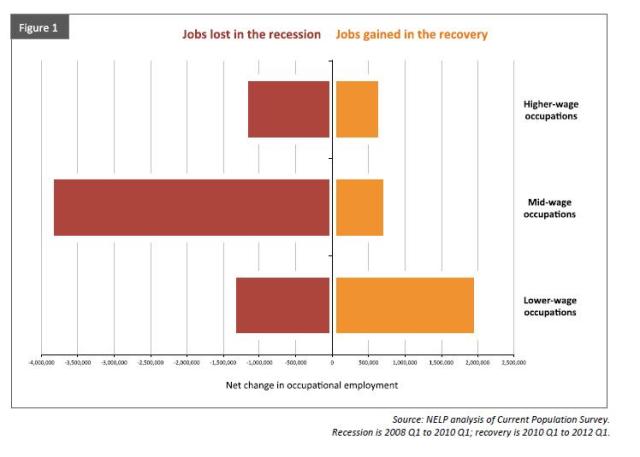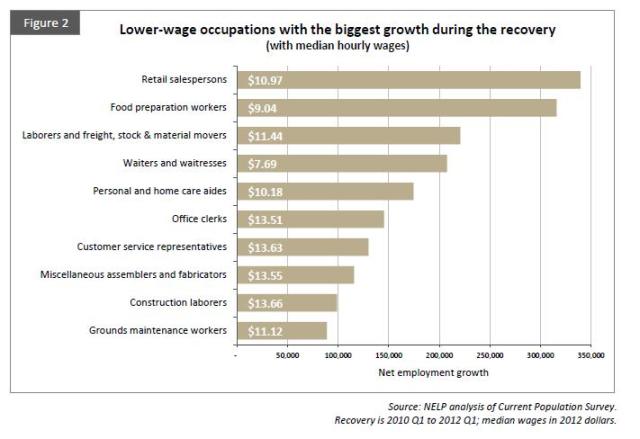The Miami Herald out with a piece today on Florida’s job recovery being led by minimum-wage jobs, which also reflects a national trend. The Herald reports,
Florida’s employment recovery hasn’t brought back many well-paying jobs.
That’s the conclusion of a new study timed for Labor Day showing the gaps of the Sunshine State’s slow but unmistakable bounce back in hiring. And it reflects a national trend, driven largely by the ripple effects of the collapsed housing market.
The three industries that account for 63 percent of all minimum-wage jobs in Florida — hospitality, retail and healthcare — also have been leading the recovery, according to the study by Florida International University’s Research Institute on Social and Economic Policy.
The National Employment Law Project looks at employment trends on a national level and concluded in their August brief:
During the recession, employment losses occurred throughout the economy, but were concentrated in mid-wage occupations. By contrast, during the recovery, employment gains have been concentrated in lower-wage occupations, which grew 2.7 times as fast as mid-wage and higher-wage occupations. Specifically:
– Lower-wage occupations were 21 percent of recession losses, but 58 percent of recovery growth.
– Mid-wage occupations were 60 percent of recession losses, but only 22 percent of recovery growth.
– Higher-wage occupations were 19 percent of recession job losses, and 20 percent of recovery growth.The lower-wage occupations that grew the most during the recovery include retail salespersons, food preparation workers, laborers and freight workers, waiters and waitresses, personal and home care aides, and office clerks and customer representatives.
Even as housing recovers construction hiring remains punk and at its lowest percentage of nonfarm payrolls since 1946 (watch for our piece later in the week). Coupled with the decline in state and local government hiring it’s no surprise aggregate demand remains weak.
The recovery, at least to us, increasingly looks like it is built on sandy ground.





What's been said:
Discussions found on the web: